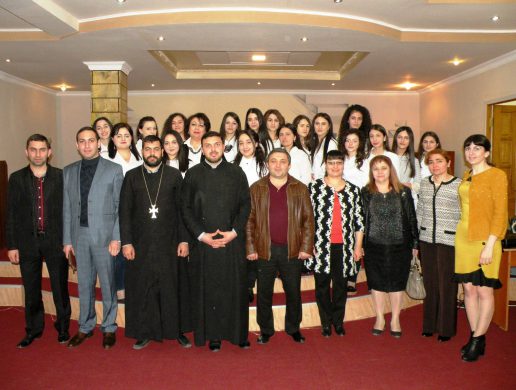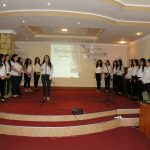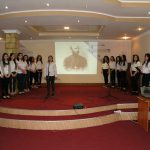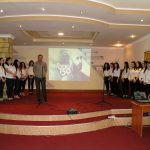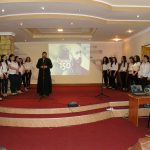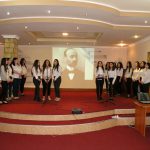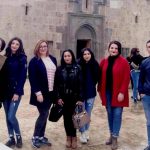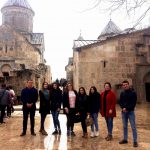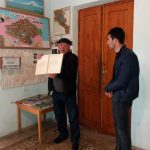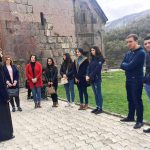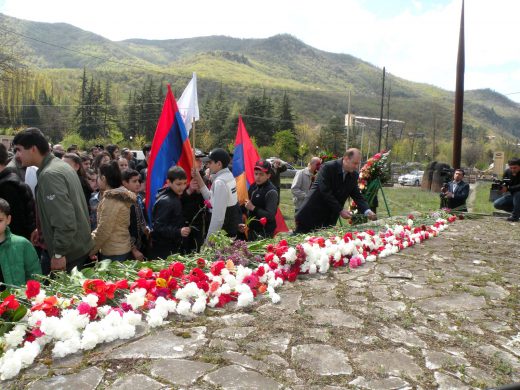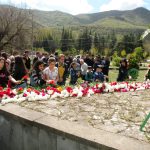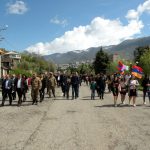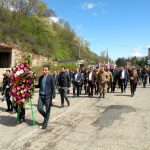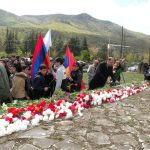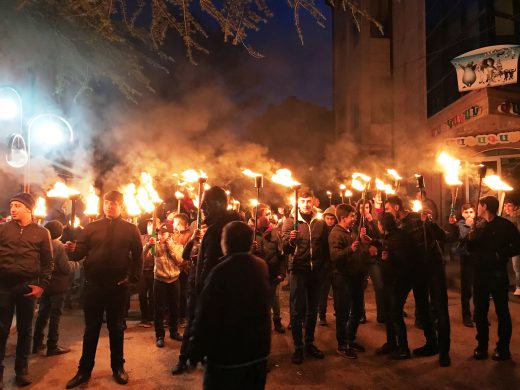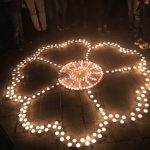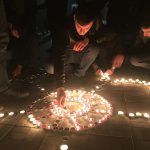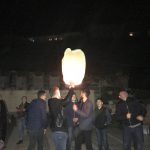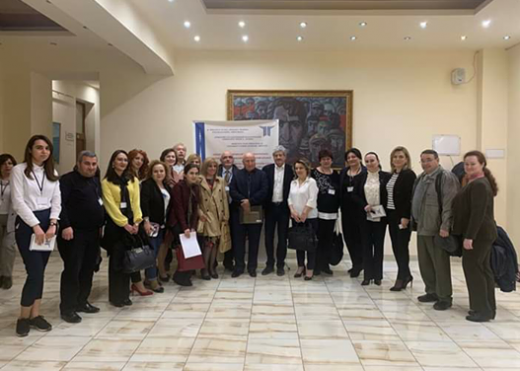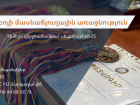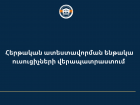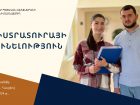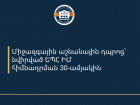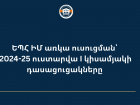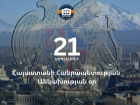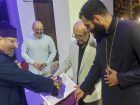On April 25th, 2019, YSU Ijevan Branch hosted a literary-musical event dedicated to the 150th Anniversary of Komitas, an Armenian priest, musicologist, compser, arranger, singer, and choirmaster, the founder of the Armenian national school of music.
The event was organized by Aida Sarhatyan, Associate Professor, PhD, lecturer of the Department of Armenian Language and Literature.
The event was attended by members of the administrative and professorial staff of YSUIB, priests and clergymen, guests, second and third-year students of “Armenian Language and Literature” specialty.
“Yesterday was the Armenian Genocide Remembrance Day … in our history and on our calendars a black day and date … 1915, April 24 …
104 years have already passed, but still our nation continues to eradicate the mystery of 1.5 million Armenians of the bloody genocide … They have become mysterious flowers of forgetfulness that every spring blossom on the motherland…
Let recite their names once again: Zohrap, Varujan, Siamanto, Ruben Sevak … and … thousands and millions … Komitas, whose song has been left unfinished and faded to lips, but even 100 years later it sounds, it will sound even after 1100 years… “.
The literary-musical event began with the sounds of the Armenian composer, singer, musicologist, arranger and teacher, choirmaster, conductor, educator, founder of the Armenian National School of Music, Komitas Vardapet.
For more than an hour, the attendees have enjoyed the masterpieces of Komitas, songs, music and poetry.
Indeed, singing and the recitation of the 2nd and 3rd year students of the specialty “Armenian Language and Literature”, their dance was really surprised the audience.
At the end of the event, Acting Head of the Department of Armenian Language and Literature, PhD, Associate Professor V. Avagyan and Bishop Arshavir Asatryan of the Diocese of Tavush conveyed their heartfelt gratitude to Aida Sarhatyan, the organizer and participants of the event.
“Our nation gives us such great thinkers as Narekatsi and Kuchak, Metsarents and Charents, Tumanyan and Komitas … (which one to mention?) They have always been the core part of our national and cultural life. They were not just the intelligentsia, but also those who reflect our homeland and nature, our love and sorrow, sufferings and dreams”.
Thus at the literary-musical event dedicated to Komitas Vardapet, our students paid a tribute to the Armenian great thinkers and poets.
The photos of the event are available in the gallery.





